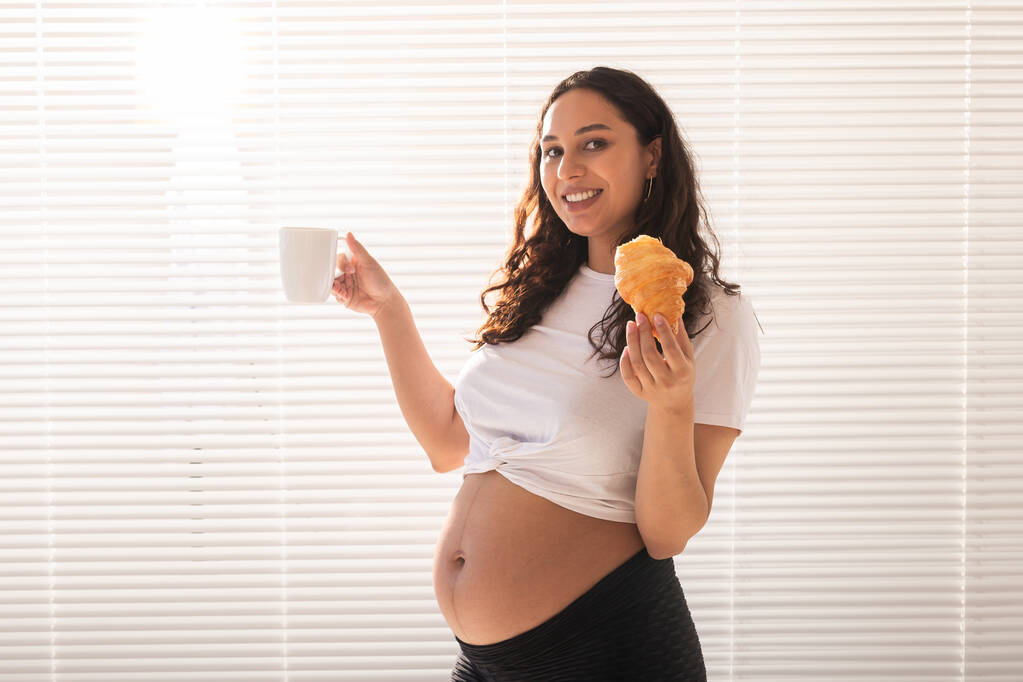Many coffee lovers don’t want to do without their daily cup of coffee, even during pregnancy. But how much coffee is allowed?

Is Coffee Healthy During Pregnancy?
Women pay particular attention to their diet during pregnancy. After all, the unborn child and the mother should not lack for anything. It is all the more important to know food and its effects. This also applies to coffee and in particular the caffeine contained in coffee. According to studies and experts, the consumption of the drink is not prohibited in principle, but should be restricted. The European Food Supply Authority recommends a maximum of around 200 mg of caffeine per day for pregnant and breastfeeding women, which is equivalent to just over one cup (200 ml) of filter coffee. Typically, up to 400 mg of caffeine per day would be fine for an adult. There are no restrictions such as only drinking coffee up to a certain point in pregnancy or not drinking coffee shortly before the due date.
Lighter birth weight
Coffee is made up of more than 1000 substances, all of which can have different effects on the body. Caffeine has a particularly large impact. Researchers from Norway have found that regular coffee consumption can have an impact on the child’s birth weight. Children born to high-consumer coffee drinkers had a lighter weight at birth than children born to women who abstained from coffee. This is harmless in healthy children. However, if the baby is born prematurely, every gram of birth weight can make a difference.
Restless babies in the womb
Babies are nourished in the womb via the placenta. This also passes caffeine on to the child when the pregnant woman drinks coffee. In general, caffeine has the following effects on the body: Caffeine stimulates the heart rate and metabolism for a short time. Caffeine can have similar effects on the unborn child. This can cause the fetus to become restless in the womb. In addition, regular coffee drinking can lead to the mother producing more urine, sleepless nights and headaches after the caffeine has been filtered out of the system. Because the fetus lacks a liver enzyme, it takes nearly 20 times as long to break down caffeine. In addition, the absorption of iron from food is inhibited.
There is so much caffeine in cappuccino, latte macchiato and co.
Pregnant women should make sure that their total caffeine intake does not exceed 200 milligrams of caffeine. But caffeine cannot only be ingested by consuming black coffee. Caffeine is also found in latte macchiato, cappuccino, tea and cola. To give you an overview, we have put together a list of caffeinated drinks for you:
Filter coffee: Up to 80 mg of caffeine per 100 ml
Espresso: Up to 110 mg of caffeine per 100 ml
Cappuccino: Up to 30 mg of caffeine per 100 ml
Cocoa: Up to 11 mg of caffeine per 100 ml
Black Tea: Up to 50 mg caffeine per 100 ml
Cola/Cola zero: Up to 10 mg caffeine per 100 ml
Cola light: up to 12 mg caffeine per 100 ml
Club-Mate: up to 20 mg caffeine per 100 ml
Energy drink (varies depending on the variety): up to 32 mg caffeine per 100 ml (Red Bull)
What coffee alternatives are there for pregnant women?
To be on the safe side, many pregnant women avoid coffee. For those who find it difficult to wait more than nine months to enjoy it, we have various coffee alternatives:
Decaffeinated coffee: The number 1 alternative is the decaffeinated version of the classic. Our tip: For quality reasons, choose a decaffeinated coffee with an organic seal of approval. However, you should also watch the amount here, as excessive consumption of decaffeinated coffee can lead to stomach upset.
Muckefuck: Another alternative is the so-called Muckefuck. The drink with the unusual name is mostly made from grain and contains no caffeine. It is also referred to as “fake coffee” because although no coffee beans are used, the drink tastes slightly like coffee due to the chicory ingredient. Chicory (or “common chicory”) is a plant that often grows along roadsides.
Fruit and vegetable juices: If you don’t get out of bed well in the morning, you can use a freshly squeezed fruit or vegetable juice. The numerous vitamins are also a good freshness kick.

After childbirth: can breastfeeding women drink coffee?
Women should also limit their coffee consumption while breastfeeding. The infant can continue to absorb caffeine through breast milk. According to the German Society for Nutrition, however, breastfeeding women can safely consume a little more caffeine than pregnant women. The guide value is around 300 mg per day, which corresponds to around two cups (200 ml each) of filter coffee. According to the Professional Association of Pediatricians in Thuringia, there is no precise research into how much coffee is “safe” for breastfeeding mothers and their children. However, we already know that too much coffee can cause sleep disorders in babies. Caffeine can also cause stomach pain and bloating in babies. Breastfeeding women should therefore continue to pay attention to how much caffeine they consume per day.

